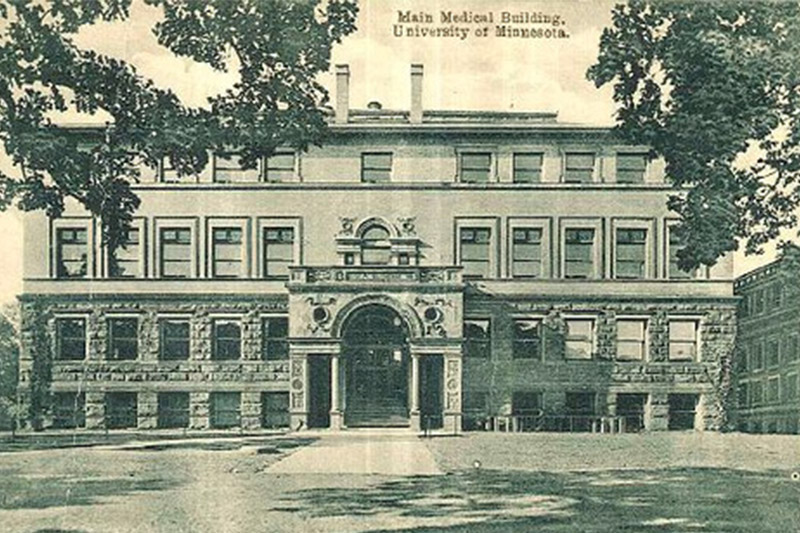Our Legacy
Celebrating 130 Years
For more than a century, the University of Minnesota’s Medical School has served Minnesota and the region’s communities by educating the next generation of physicians and biomedical scientists, discovering and delivering new treatments and cures for patients and their families, and improving the economic vitality of our state and nation.
It's important to remember how it all began.
-
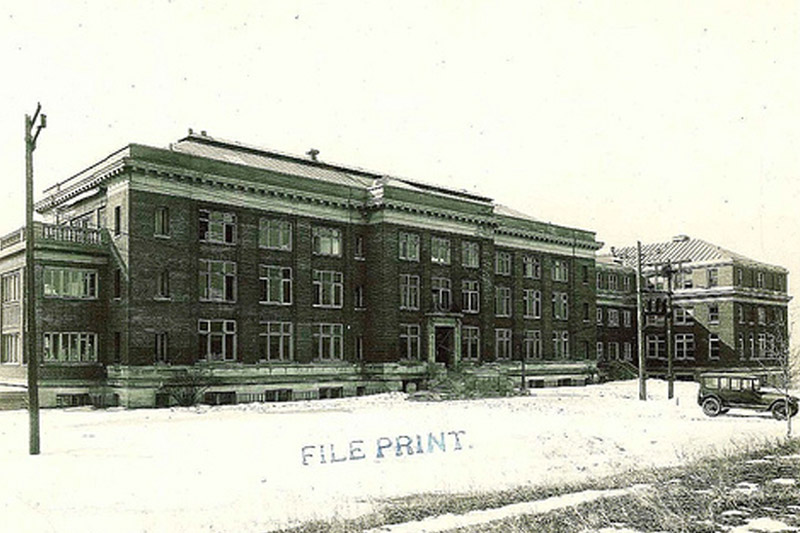
click to enlarge photo
the Regents of the University of Minnesota fulfilled the stated intent of this land grant University by voting to establish a medical education program for the sons and daughters of the state. -
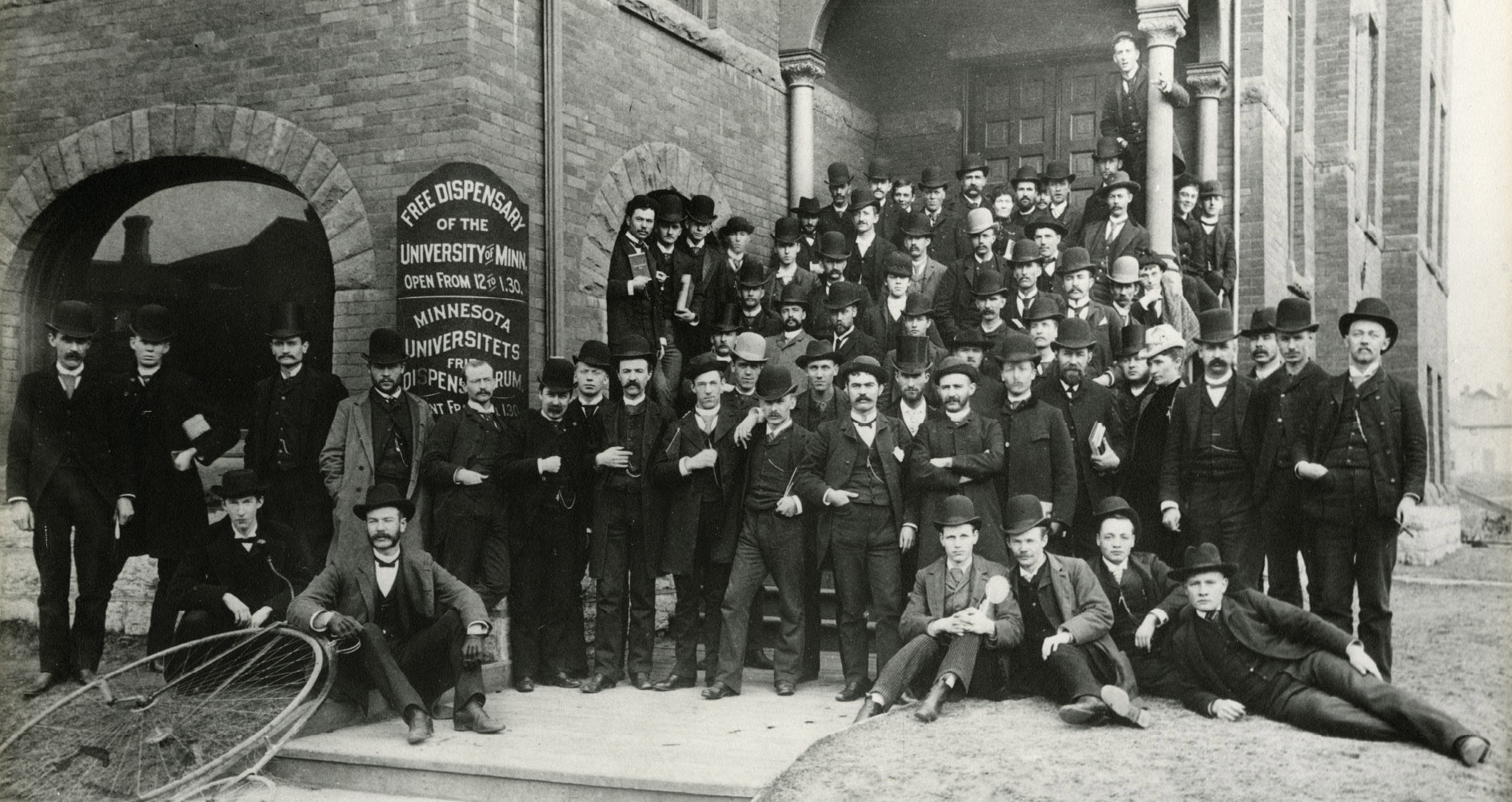
click to enlarge photo
The first Medical School class began in October of 1888 with 116 students drawn from the merger of three private medical education programs in Minneapolis and St. Paul. Students followed a rigorous course of lectures lasting a little over one year to complete their education. -
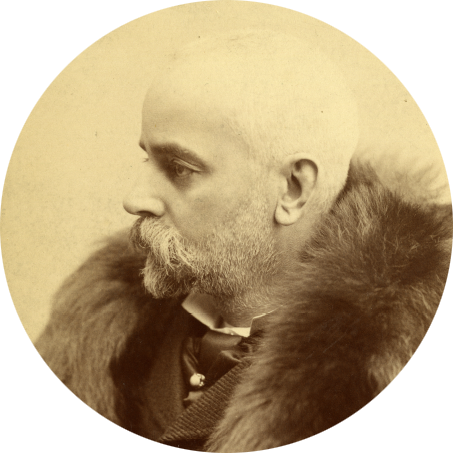 Dr. Perry H. Millard served as the first dean of the University’s Medical School. Millard advocated for the creation of a Board of Medical Examiners, believing physicians should pass an examination before practicing medicine. His work led to Minnesota being the first state in the nation to require physicians to be licensed in order to care for patients.
Dr. Perry H. Millard served as the first dean of the University’s Medical School. Millard advocated for the creation of a Board of Medical Examiners, believing physicians should pass an examination before practicing medicine. His work led to Minnesota being the first state in the nation to require physicians to be licensed in order to care for patients.
-
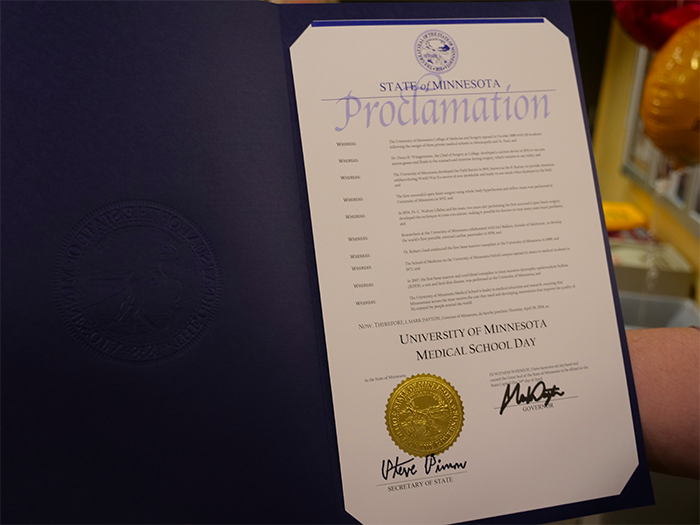
click to enlarge photo
In honor of our legacy of contributions to the state, Minnesota Governor Mark Dayton recognized the 130 year anniversary with a proclamation noting April 26, 2018, as University of Minnesota Medical School Day in Minnesota.
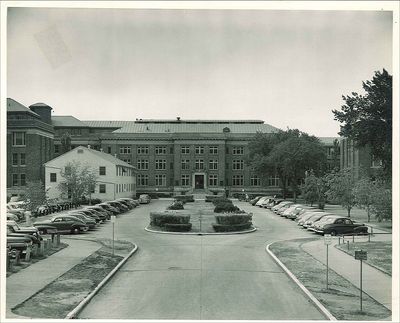
Today, nearly two-thirds of all physicians practicing in Minnesota were educated or trained at the University’s Medical School. Leading edge research by our faculty and graduate students generates health innovations that benefit all. And that research has been awarded millions in federal, state, and private grants in 2017 alone. Our physicians who teach our students also deliver care to thousands of patients each year who come to us seeking the type of comprehensive care that is characteristic of university-affiliated hospitals and clinics – places that always ask “why?” and “how can we do this better?"
